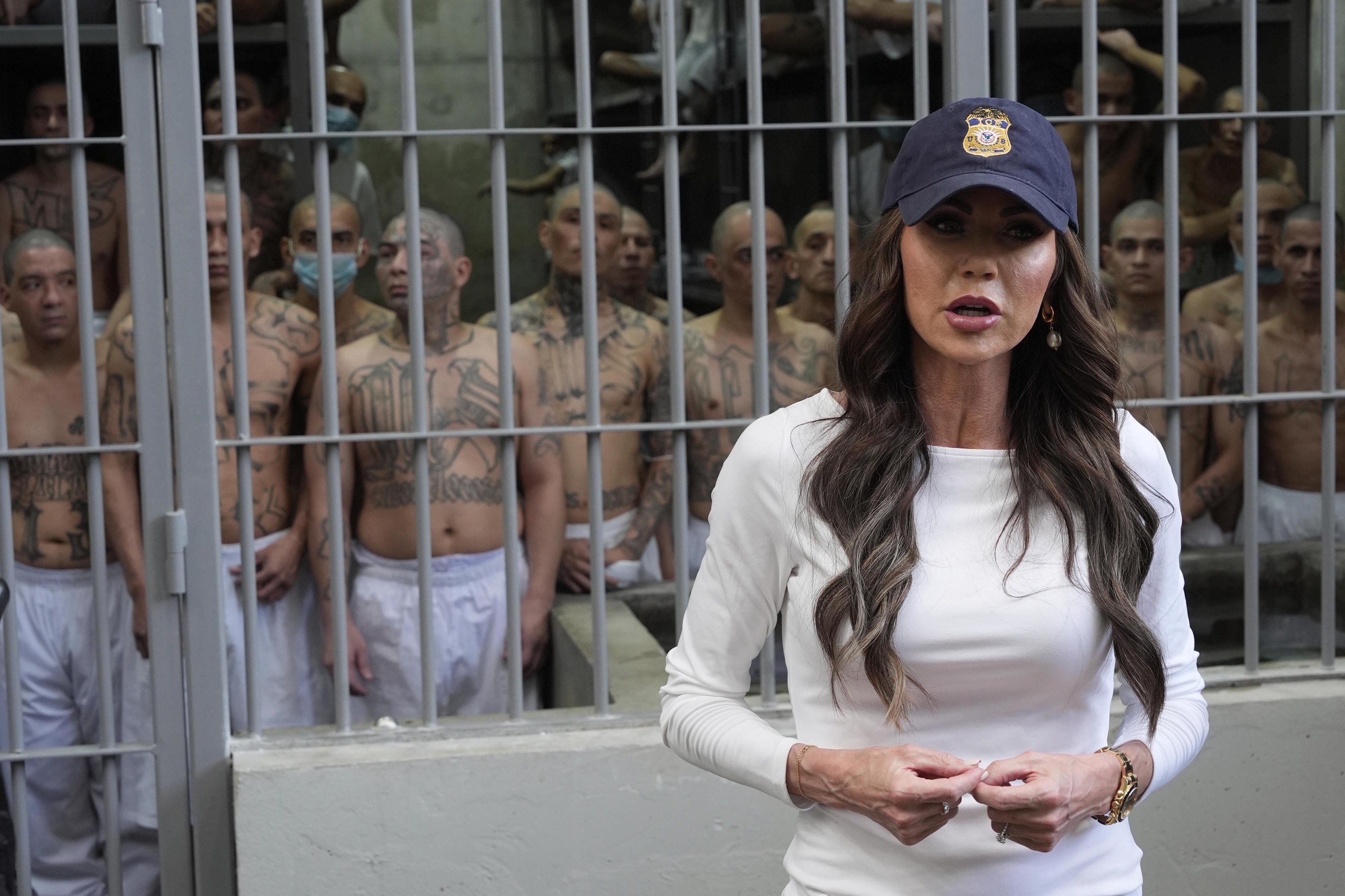US Secretary of Homeland Security, Kristi Noem, visited on Wednesday the high-security prison in El Salvador where Venezuelan detainees are held, who, as Washington alleges, are gang members detained since their expulsion from the United States. The tour included two overcrowded cell blocks, the armory, and an isolation unit.
Noem's visit to the prison - where inmates are crowded in cells and never allowed to leave - took place as the government of US President Donald Trump seeks to demonstrate that it is deporting individuals described as "the worst of the worst." The US government argues before a federal court that sending Venezuelans to El Salvador was justified, while human rights activists claim that authorities have sent them to a prison where abuses abound and have presented little evidence that they were part of the Venezuelan gang Tren de Aragua.
In particular, Noem avoided press questions about whether deported Venezuelans would remain in prison indefinitely and if they could return to the United States if ordered by a court to do so. "We will let the courts decide," she told reporters after the visit. Noem toured an area housing some of the Venezuelans accused of gang membership. Inside the sweltering building, men dressed in white t-shirts and shorts silently looked out from their cell without making a sound, and when she left, they were heard shouting an unrecognizable slogan.
In a cell block housing Salvadoran prisoners, about a dozen were guarded by officers near the front of their cell, and they were asked to remove their shirts and masks. The men had many tattoos on their chests, some with the letters MS, representing the Mara Salvatrucha gang.
After listening to Salvadoran officials, Noem turned her back to the cell and recorded a video message. If an immigrant commits a crime, "this is one of the consequences they could face," she stated. "First and foremost, do not come to our country illegally. You will be deported and prosecuted. But keep in mind that this facility is one of the tools in our kit that we will use if you commit crimes against the American people."
Noem also met with Salvadoran President Nayib Bukele, who has earned admiration from the US right for his crackdown on the country's gangs, despite the democratic and due process implications this entails.
"This unprecedented relationship we have with El Salvador will be a model for other countries on how they can collaborate with the United States," Noem told the press on Wednesday. Since taking office, Noem has frequently led initiatives to highlight immigration enforcement. She has participated in immigration control operations, ridden horses with Border Patrol agents, and was the face of a TV campaign warning undocumented residents in the US to self-deport. Noem's Wednesday visit is part of a three-day trip. She will also travel to Colombia and Mexico.
The detained Venezuelans were expelled from the United States this month after Trump invoked the 1798 Alien Enemies Act and claimed the country was being invaded by the Tren de Aragua gang. The Alien Enemies Act grants the president powers in times of war and allows foreigners to be deported without the opportunity to appear before an immigration or federal judge.
An appeals court on Wednesday upheld an order prohibiting the government from deporting more Venezuelan immigrants to El Salvador under the Alien Enemies Act. A key pending question regarding the status of the deportees is when and how they could be released from the prison, called the Center for Terrorism Confinement (CECOT), as they are not serving sentences. They no longer appear in the online detainee locator of the US Immigration and Customs Enforcement (ICE) and have not appeared before a judge in El Salvador.
